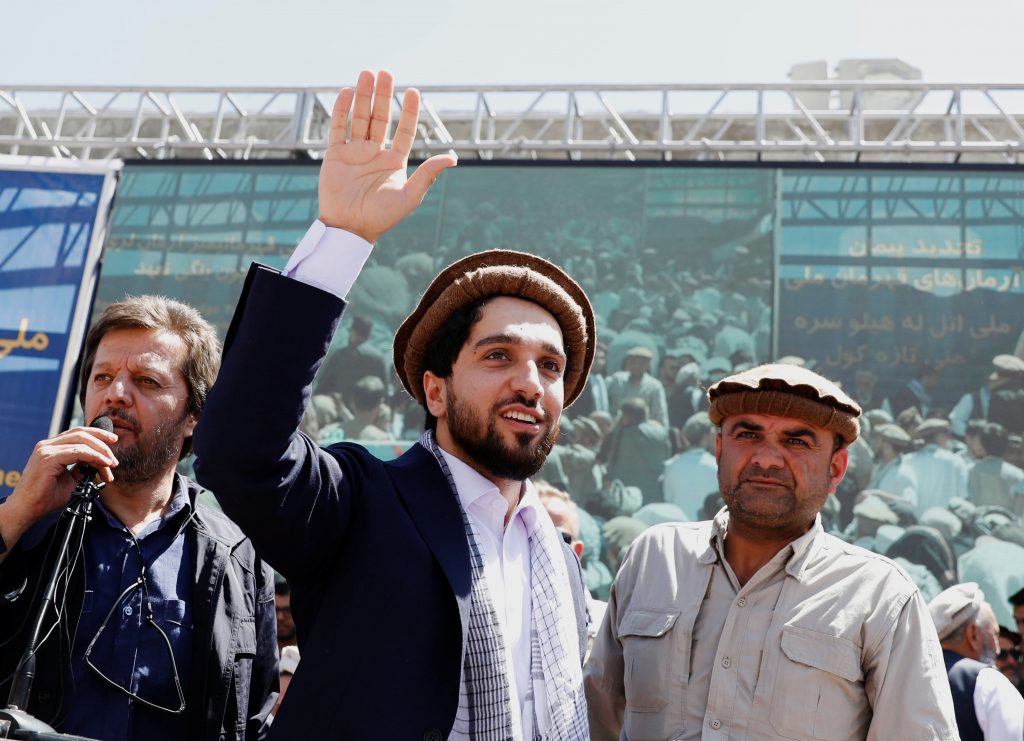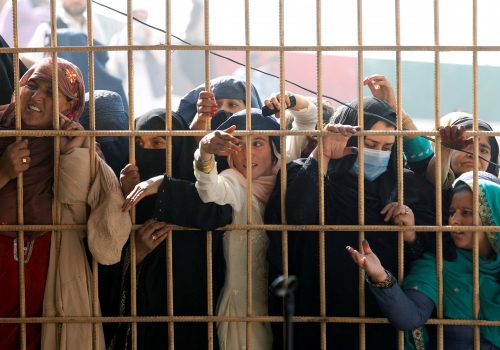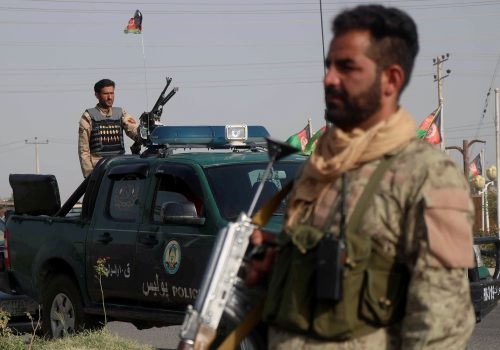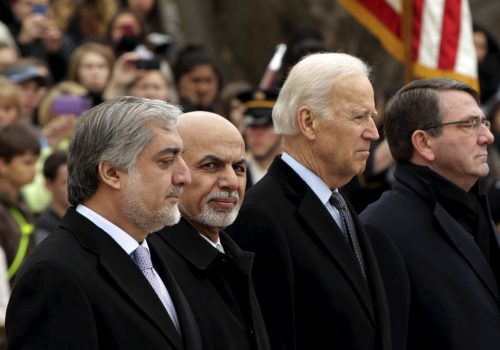Just weeks before US troops fully withdraw from Afghanistan—and as Taliban fighters conquer more territory across the country—Ahmad Massoud says he is open to negotiations with the militants.
“I am willing and ready to forgive the blood of my father for the sake of peace in Afghanistan and security and stability in Afghanistan,” said Massoud, son of the anti-Soviet resistance commander Ahmad Shah Massoud, in an interview with the Atlantic Council’s South Asia Center. Massoud’s father was assassinated by al-Qaeda days before the 9/11 attacks in 2001.
But he and other Afghans are not willing to “give in to the will of terrorism,” added Massoud, who is based in the government-controlled Panjshir province in northeastern Afghanistan. “We are ready to create an inclusive government with the Taliban” through political negotiations, he explained, but what’s unacceptable is an Afghan government marked by “extremism and fundamentalism” that would pose a grave threat not just to Afghanistan but to the region and the wider world.
Yet the Taliban’s sweeping military offensive in recent weeks suggests that the group is in no mood for talks. Its forces have seized provincial capitals, stoking fears among Western leaders and locals alike that the Taliban’s brutal reign could soon return. On Tuesday, Afghan President Ashraf Ghani and fellow political leaders reportedly agreed to arm civilian forces to resist the Taliban’s advances.
Massoud reflected on what brought Afghanistan to this perilous point and outlined the way forward for a peace process he believes has failed. The 32-year-old is among the prominent voices pushing for the resurrection of a coalition of anti-Taliban ethnic militias akin to the Northern Alliance of the late 1990s.
Here are some key takeaways from our interview:
The case for decentralization
- As a result of the corruption and misrule stemming from the country’s heavily centralized system of governance and security, Massoud argued, the Afghan government has failed to win the population’s backing. As the Taliban goes on the offensive, he said, “people do not trust that the system will be able to save them.” A diverse, multiethnic society like Afghanistan’s needs a decentralized political system and armed forces, he contended.
- Effectively fighting extremism requires empowering local anti-Taliban militias, Massoud argued, noting that the Afghan army, which he characterized as “one of the biggest achievements of the past two decades,” is at risk of being exhausted in its struggle with the Taliban. In fact, he added, reform-minded local military and political leaders resisting the militant group are “actually the backbone of the government right now.”
How to get the Taliban to negotiate
- Massoud believes the only way the Taliban can play a role in Afghanistan’s future is if its members cease fighting—a message he says regional powers must help deliver. “It is [the Taliban] who are spreading the fire, not us,” he stated.
- That, however, is a daunting task. Massoud explained that today’s Taliban fighters have become “even more radicalized than their fathers who fought in the 90s” thanks to their links with modern jihadist groups such as ISIS and al-Qaeda. “The Taliban have not been reformed,” he asserted.
- While he said he respects the US decision to withdraw militarily from Afghanistan, Massoud blamed Afghanistan’s current plight in part on the timing and sequencing of the February 2020 agreement between the US government and the Taliban, which he argued should have come after the Afghan government and the Taliban had reached their own political settlements. As a result, and given the Taliban’s current “momentum,” he said, the talks in Doha between the Taliban and Afghan government are effectively “over” for now.
- The most effective way to pressure the Taliban to talk is through deterrence. Once the group’s leaders realize they can’t achieve their goals militarily in Afghanistan, they’ll likely be more open to political dialogue, Massoud maintained. The strongest incentive to dangle before the group, he added, is “regional and international recognition,” which he argued other countries should only grant to the Taliban if they come to power through peace talks or elections rather than war.
Watch the full interview
Kamal Alam is a nonresident senior fellow at the Atlantic Council’s South Asia Center and a special adviser and representative of the Massoud Foundation, of which Ahmad Massoud is the president.
Further reading

The South Asia Center is the hub for the Atlantic Council’s analysis of the political, social, geographical, and cultural diversity of the region. At the intersection of South Asia and its geopolitics, SAC cultivates dialogue to shape policy and forge ties between the region and the global community.
Image: Ahmad Massoud, son of the slain hero of the anti-Soviet resistance Ahmad Shah Massoud, waves as he arrives to attend a new political movement in Bazarak, Panjshir province in Afghanistan on September 5, 2019. Photo via REUTERS/Mohammad Ismail.



